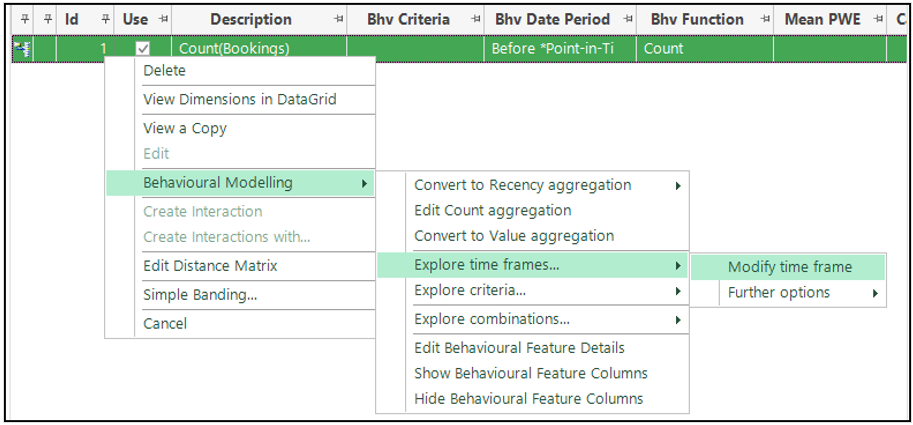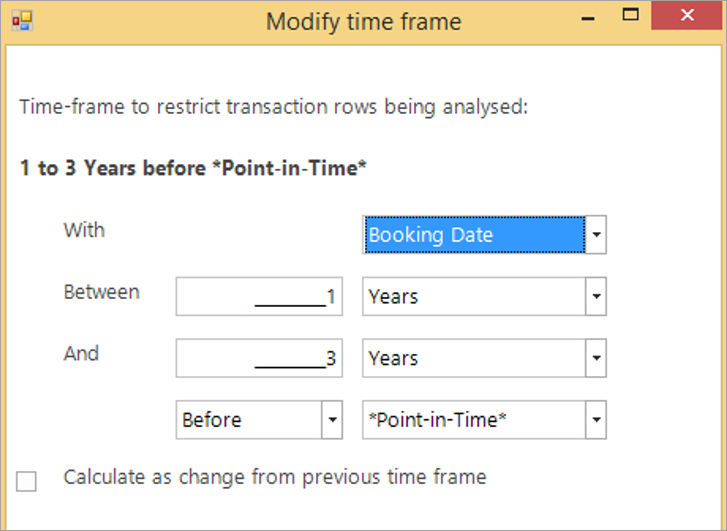Behaviour-based Modelling - Flexible Time Frame
Added in Q4 21 - more flexible specification of time frame to restrict the transaction rows being analysed
When creating a Behavioural Feature, you can set the time frame - also referred to as the date period - to restrict which transactions are analysed. You can also directly modify the time frame for an existing Dimension using the right-click option.

The time frame allows Dimensions to assess a person's behaviour relative to a point-in-time, which might differ from one individual to the next, depending upon when a particular event - or events - happened for that person. For example, if your model is predicting who will make a holiday booking and then go on to take travel insurance, the time frame could focus on behaviour relative to the booking event or the insurance event.

You can define the time frame to be:
-
open-ended - e.g. sometime before
Or:
-
a range of days, weeks, months, etc - e.g. "one week before" is defined as being any time during the week before the event
The option to "Calculate as change from previous time frame" compares the value of the Behavioural Feature in the given time frame to that of the same length in the time frame before.
The time frame of all Dimensions is relative to the same point-in-time; this is defined within the Selection tab when you set up your event-driven scenario.
Related topics: